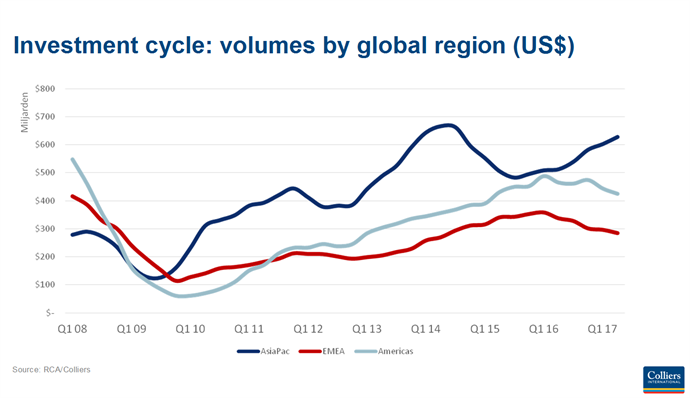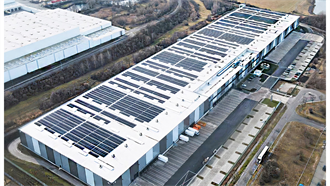Not only is a massive amount of capital targeting UK and European real estate, but the range and variety of overseas investment sources is remarkable, making for a very active and diversified market.
Experts gathered in London for the PropertyEU European Outlook H2 Investment Briefing this week agreed that Europe continues to be an attractive safe haven for overseas investors from all over the world.
‘There is a tremendous range of capital out there and it is constantly changing,’ said Robin Carr, executive director –head of UK and co-chief investment officer at Aerium. ‘We are seeing a lot of Middle Eastern money coming into the UK, to London but also to regional centres. It is a currency-driven but also debt-driven move.’
Qatar, which in the last few years has been one of the most active investors in the UK real estate market, is likely to go on another shopping spree following its recent blacklisting by Saudi Arabia, the United Arab Emirates, Bahrain and Egypt, panellists said.
US capital is largely sitting on the sidelines at the moment, but is ready to move quickly, pouncing when opportunities are spotted. ‘The more opportunistic North American money is now settling for returns in the low teens and going more into core plus,’ said Richard Divall, head of cross border capital markets, EMEA at Colliers International.
Asian capital gets active
South Korean insurance companies are very active in the UK and ‘paying premium prices’, said Divall, and they are also having great success in continental Europe teaming up with local partners like Patrizia.
Money from China and Hong Kong is mainly targeting London at the moment, but ‘there is a feeling they want to diversify more and are more and more willing to move into continental Europe,’ he said.
South African investors, keen to get money out of their country, are also being more active. ‘So far they have invested mainly in retail and shopping centres in Central and Eastern Europe, but they are now targeting the UK and will move into Western Europe as well,’ said Divall.
Foreign investors are also becoming more adventurous in their choice of investments and more sophisticated in their assessment of the market. They look at cities rather than countries, said Riccardo Dallolio, head of HIG Realty Partners in Europe, HIG Capital: ‘They know that there are weak cities in strong countries and strong cities in weak countries.’
Lure of logistics
They no longer just invest in the office market or core residential, but are increasingly interested in logistics. ‘The demand and supply imbalance of urban logistics is particularly favourable,’ said John Danes, head of Continental European Property Research at Aberdeen Asset Management. ‘Rental growth in major cities is stronger for logistics than for any other sector.’
The sector continues to change. The Japanese idea of multi-storey industrial buildings near city centres is being imported into Europe, with Munich and Paris leading the way and more expected to follow.
Logistics is on a roll and e-commerce is driving the changes, but retail is a more challenging sector, especially in the UK, said Danes: ‘We are worried about the impact on the sector of high inflation and the current squeeze on living standards.’
The weakness of sterling following the EU referendum has led to a rise in inflation well above real wage growth. This is leading to a fall in consumer confidence, as shown by the latest figures: the UK has just posted its lowest yearly retail sales growth rate for four years.



































